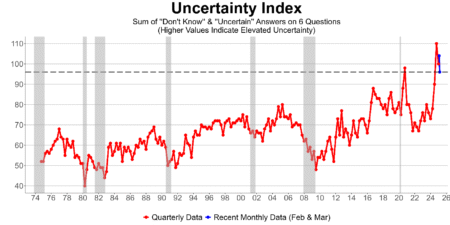Daniil Demchuk is CEO and Founder of Smart Flats 24, a leader in the short-term rental market in the Czech Republic.
The convergence of evolving consumer preferences, technological breakthroughs and an increasingly complex regulatory landscape is reshaping the short-term rental (STR) industry.
In looking at current and future trends, I believe operators who strategically integrate smart technology, sustainable practices and proactive compliance measures will be best positioned for long-term success. Based on my own experience in the hospitality sector, I’ve seen firsthand how anticipating such trends can help you maintain a competitive edge.
1. Market Dynamics And The Regulatory Environment
Despite recent changes, urban markets remain central to the STR industry, yet they are increasingly defined by strict regulations.
In many major cities—such as those in France, Spain and North America—new occupancy bylaws, mandatory property registrations and rental day limits are being enforced. Recent reviews indicate that, when it comes to short-term rentals, a significant portion of top markets already operate under regulatory pressures.
For example, Enso Connect highlights how France’s emerging rules now cap rentals at 90 days per year, and several U.S. regions have implemented their own restrictions. These measures, while challenging, help improve safety standards and weed out lower-quality listings. In my experience, staying ahead means building robust local partnerships and investing in compliance technologies to adapt quickly to these changes.
2. Embracing Technological Innovations
Smart technology is rapidly becoming the backbone of modern STR management. Today’s properties are often equipped with keyless entry systems, intelligent thermostats and advanced security features that not only enhance guest convenience but also improve energy efficiency.
AI-driven management tools and IoT sensors, for instance, enable real-time adjustments in energy consumption based on occupancy and weather patterns. Furthermore, integrated platforms that combine dynamic pricing, real-time maintenance alerts and streamlined guest communication can help reduce operational costs and boost guest satisfaction.
I believe leveraging these technologies is crucial, and 34% of property managers are now using AI for things like dynamic pricing and guest communication, highlighting a jump that I have witnessed firsthand as transforming day-to-day operations within the industry.
3. Sustainability As A Strategic Advantage
Along with new technologies, I see sustainability as no longer a niche appeal but a core expectation among today’s eco-conscious travelers.
Modern guests actively seek accommodations that feature energy-efficient appliances, renewable energy systems and water-conserving fixtures. Forecasts suggest that properties embracing these upgrades can not only reduce operating costs but also attract a premium segment of guests.
I think those in the industry can focus on things like solar panels, water recycling systems and other green technologies to help with occupancy rates and improve guest reviews.
4. The Emergence Of Workcations And Personalized Experiences
Remote work continues to blur the lines between business and leisure, giving rise to the “workcation” trend. I see guests increasingly seeking locations that offer both productivity and relaxation—especially in suburban and rural areas.
Therefore, operators who provide high–speed internet, dedicated workspaces and comfortable environments can capture this growing market segment. Moreover, as competition intensifies, unique, themed stays—such as tiny homes, treehouses or off–grid cabins—can also help as major differentiators.
I find that curating local experiences, whether through culinary tours or wellness packages, can not only enrich guest experiences but also foster loyalty and repeat business.
5. Unlocking New Revenue Streams and Operational Strategies
In a competitive landscape, diversification is key. Upselling additional services—such as early check-ins, curated local experiences or premium guest packages—can significantly boost revenue without the need for extra properties.
The earlier cited study from Enso Connect shows how upsells can generate an extra $147 per listing, per month, and many operators are successfully using dynamic pricing tools to adapt to fluctuating demand.
In my practice, leveraging advanced data analytics has helped predict maintenance needs and fine-tune guest services, resulting in measurable improvements in both profitability and guest satisfaction.
6. Looking Ahead: A Blueprint For Resilience And Growth
I believe successful STR operators will need to adopt a multi-pronged strategy for our current economic environment:
• Automate and optimize: Invest in smart automation and AI tools to streamline operations while maintaining high service standards.
• Capitalize on upsells: Look to develop and market add-on services that enhance the guest experience and drive incremental revenue.
• Target unique niches: Differentiate your property by catering to specialized markets—such as remote workers, wellness travelers or families seeking distinct experiences.
• Strengthen marketing and distribution: I highly recommend you diversify your booking channels and use data-driven strategies to reach high-value segments.
• Adapt to regulatory changes: Make sure to stay ahead of evolving legal requirements by investing in compliance measures and building local networks.
• Leverage data for profitability: As I touched on earlier, when embracing technological innovations, make sure to use market intelligence to optimize pricing, monitor key performance indicators (e.g., average daily rate, revenue per available room) and guide your strategic decisions.
Leading With Innovation
As we continue into 2025, I believe the STR industry will reward operators who embrace smart technology, sustainable practices and proactive regulatory compliance.
Drawing on insights from industry forecasts and my own experience, it’s clear that the future belongs to those who can invest in energy efficiency and leverage technology to create unique guest experiences. Utilizing these strategies, I am certain operators can build a resilient business that thrives even amid regulatory and market pressures.
Forbes Business Council is the foremost growth and networking organization for business owners and leaders. Do I qualify?
Read the full article here











